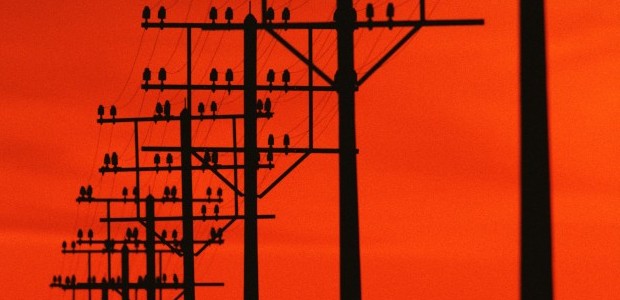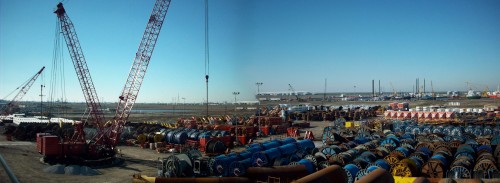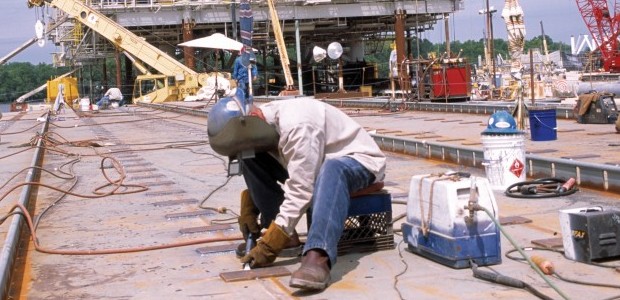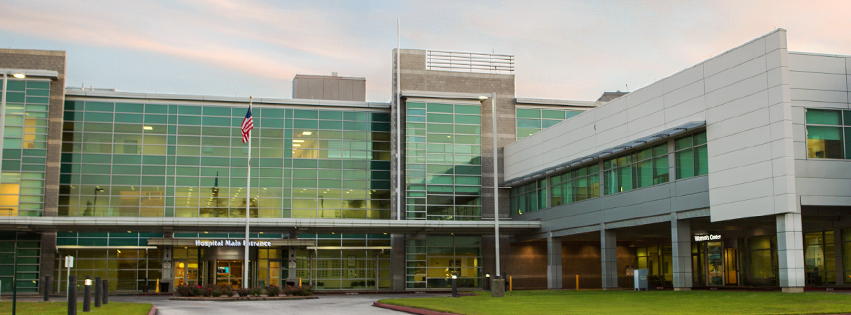
Is drilling at pre-BP disaster levels yet?
September 25, 2012
Port Fourchon expansion ongoing
September 25, 2012Kerry Chauvin’s name is synonymous with Gulf Island Fabrication, one of Terrebonne’s largest private employers that builds offshore drilling and production systems, jackets and other specialized structures, as well as marine vessels.
But he’s also a Houma native who pursued a career in an industry he had no original desire to join and still has been able to fulfill one of his early career aims.
Chauvin’s father had worked a 14-and-7 schedule in oil-and-gas production, which didn’t allow him to spend much time with his family. A young father, Chauvin wanted his work schedule to allow him to be more present and involved, so he looked at other career fields as he was readying to leave the U.S. Air Force after a two-year stint on an early-out program.
An LSU graduate with a bachelor’s degree in mechanical engineering and a master’s in business administration, Chauvin spent his time at Eglin Air Force Base building a golf course, an officer’s club and other buildings, as well as writing plans for snow removal and moving airplanes off the base in case of nuclear attack.
“I wanted to be a banker,” he said, but it was not the right fit – pursuing that career meant a pay cut of $400 per month as well as a vehicle, housing, medical care and other benefits. With a wife and young child, Chauvin knew he had to look at the next best choice, and shipbuilding paid engineers $900 per month plus a company car and expense account, so he left banking for the more lucrative career field.
After four years in shipbuilding, a friend sought his help in the fabrication industry at Delta Shipyard, which had experienced a significant business loss. It was a move that quickly pushed Chauvin into leading the division and ultimately rising to president before the company entered bankruptcy.
Then a number of people were interested in putting the company back together and while Chauvin was wary of doing so with debt, “a real good group” of investors – including Doc Laborde and Huey Wilson of Wilson’s Distributors – was assembled. “I figured this was a good time to take a chance,” he said.
In its first year of operation, Gulf Island needed more capital and although still reluctant to do so, Chauvin sought a bank loan but couldn’t get it because the company needed another $1 million in equity. Laborde and Wilson stepped up and the other investors left the arrangement. “They wanted to see Terrebonne Parish survive,” Chauvin said; it was in the mid-1980s, when local unemployment was 26 percent. “They wanted to put people back to work.”
And that’s exactly what the team did, giving Chauvin the opportunity to take on some ownership in the now publicly-traded company while building an enterprise now with 2,300 employees in six subsidiaries, and on more than 600 acres in Terrebonne Parish with another fabrication yard in Texas. He serves not only as the company’s chief executive officer but also board chairman.
“Every company I know in our business that has taken on (significant) debt has gone out of business,” Chauvin said, so under his leadership, Gulf Island has rarely – and usually on a short-term basis when needed – taken out loans.
Chauvin credits the Air Force with shaping him into a business leader and believes that every person should serve in the military to allow for some maturing before pursuing a career in the private sector and being responsible for their activities.
“I was a very shy individual growing up,” he said. “The Air Force brought out a lot of leadership qualities where I needed to have it… I was afraid to talk in front of anyone.” But giving military briefings and commanding a contingent of up to about 60 men “was a very awakening experience for me… You’ve got to be brief, orderly and you’ve got to be concise when you give a talk,” Chauvin said.
Organization and brevity helps keep people engaged in your message, he said, and following through on your words builds respect from others. Chauvin has applied those lessons throughout his management career, noting that hiring quality employees is one of the keys to business success – and, in the fabrication business, sufficient capitalization.
“I have some good employees to take over when I can’t be here,” said Chauvin, who although is still running the company, has had to scale back his work hours to five to six hours a day while fighting multiple myeloma, a cancer in which plasma cells collect in bone marrow and damage bones and organs. He’s worked to train his team to think along the same lines as he does, so they can effectively step in and make decisions when Chauvin is unavailable.
Detection of the cancer occurred three years ago as a result of one of Chauvin’s efforts at supporting the community, a regular blood drive at Gulf Island’s facility. The blood mobile staff found him to be anemic and recommended he follow up with his physician. Treatment at MD Anderson Cancer Center in Houston followed and now Chauvin’s in a rigorous program at the University of Arkansas for Medical Sciences’ Myeloma Institute for Research and Therapy. It has involved chemotherapy to kill the diseased cells, and harvesting and reinjection of healthy stem cells.
“Ultimately, my bones will be back to normal,” he said. “It’ll take a year after the myeloma is gone.”
The regular blood drives are one example of Chauvin’s belief in using one’s skills and resources for the benefit of the community. He’s served as a board member of the Louisiana Trooper Foundation (which promotes positive interaction between troopers, youth and communities), supports the Bright Light Foundation (which assists with the medical needs of people within the oilfield stricken by catastrophic illness), pays college tuition for two students who need the assistance and are serious about getting an education, and helps individuals with specific needs like food, blankets and other necessities when hard times hit.
“The community actually needs your help,” Chauvin said. “If you have skills you can lend to the community, I think you should do that. They don’t always have all the skill sets that are needed to run the community.”
Chauvin has given his professional skills back through working with the South Central Industrial Association, of which he is a founder, charter member and past president; served on the Terrebonne Port Commission; was founder of the Terrebonne Waterways Association; and is a member of the LSU Foundation (although his children and grandchildren usually fill the eight seats), the Nicholls State University Foundation, and the Federal Reserve Bank of Atlanta’s Energy Advisory Council. He previously served on the former First National Bank’s board and is a current board member (as well as executive, loan and personnel committee member) of Synergy Bank.
“I always wanted to be a banker, so (serving on Synergy Bank’s board) helps fulfill that need,” Chauvin said. And although he’s dealing with an illness right now, “ultimately, I’m not ready to retire. I think I still have a few good years left for this company and would like to grow it some more.”
Gulf Island Fabrications CEO Kerry Chauvin, upper right, credits a strong workforce for building this company into being one of the largest private employers of Terrebonne Parish. Chauvin has said by allowing employees to do their best leads to building quality products.









